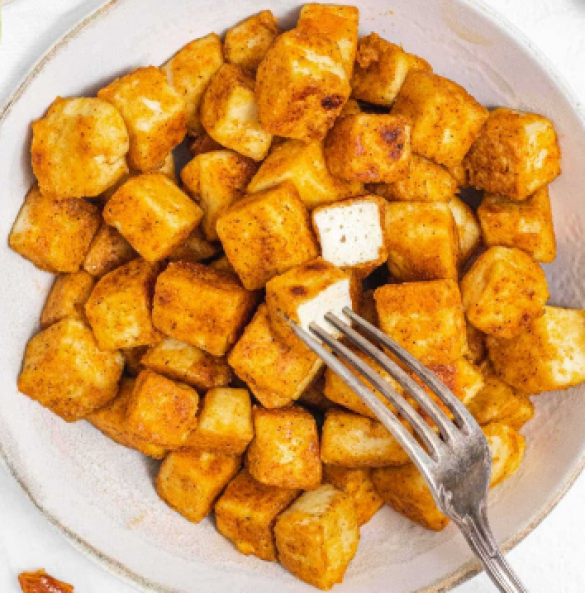
A vegan lifestyle has gained popularity in recent years due to its ethical, environmental, and health benefits. However, some people are concerned about meeting their protein needs without consuming animal products. Fear not! The plant-based world is abundant with protein-rich options. In this article, we'll explore the five best vegan sources of protein.
5 Best Vegan Sources of Protein -
Legumes and Pulses - Legumes and pulses are a staple in vegan diets and are excellent sources of protein. Lentils, chickpeas, black beans, and soybeans are a few examples of these protein-packed wonders. One cup of cooked lentils contains approximately 18 grams of protein. Additionally, legumes are rich in fiber, iron, and other essential nutrients. Incorporating legumes into soups, salads, and curries is a simple and delicious way to boost your protein intake.
Tofu and Tempeh - Derived from soybeans, tofu and tempeh are highly versatile and protein-rich foods. Tofu, made from soybean curds, contains about 8 grams of protein per 3-ounce serving. It quickly absorbs the flavors of the dishes it is used in, making it a popular ingredient in stir-fries and vegan desserts. Tempeh, a fermented soy product, offers even more protein, with around 16 grams per 3-ounce serving. Its firm texture and nutty flavor make it an excellent meat substitute for sandwiches and burgers.
Quinoa - Quinoa is a complete protein, meaning it provides all nine essential amino acids that the body cannot produce on its own. One cooked cup of quinoa contains about 8 grams of protein. This ancient grain is a protein powerhouse and a great source of fiber, magnesium, and iron. Its versatility allows it to be used in salads, bowls, or as a side dish, making it a must-have in any vegan diet.
Nuts and Seeds - Nuts and seeds are not only delicious snacks but also rich sources of protein. Almonds, peanuts, chia seeds, and hemp seeds are particularly noteworthy. One ounce of almonds contains around 6 grams of protein, while two tablespoons of chia seeds provide approximately 4 grams. Besides protein, nuts, and seeds are also high in healthy fats, vitamins, and minerals. Sprinkle them on oatmeal, add them to smoothies, or create your protein-packed energy bars to reap the benefits.
Seitan - Seitan, also known as wheat gluten, is a meat substitute with an impressive protein content. With about 21 grams of protein per 3-ounce serving, it's a favorite among vegans looking for meat-like textures in their dishes. Seitan is created by washing wheat dough to remove the starch, leaving behind the gluten. It can be grilled, sautéed, or simmered, making it a versatile and delectable choice for a protein-rich meal.
Embracing a vegan lifestyle does not mean sacrificing protein intake. With a diverse array of plant-based protein sources available, it's easier than ever to meet your protein needs. By incorporating legumes, tofu, tempeh, quinoa, nuts, seeds, and seitan into your diet, you can enjoy a well-rounded and nutritionally balanced plant-based eating experience.
Also read: Yogurt's Nutritional Power: 5 Health Benefits You Can't Ignore
8 Superfoods Women Over 40 Must Eat for Optimal Health and Vitality5